
No one ever expects the Spanish Armada. Yet, somehow, in the year of our Lord 1588, England had survived. Perhaps the arrival of the Invincible Armada was predictable. After all, Phillip II, the Well-Chinned, His Most Catholic Majesty, king of Spain, etc. had a well demonstrated habit of oppressing Protestants, at least when he wasn’t indulging his primary passion of breeding the next generation of super-chinned Hapsburg superman with one of his cousins or maybe a niece. Of course it didn’t help that Elizabeth I, the Miser, Queen of England, had pursued a muddled strategy of extreme caution and provocation, which only infuriated a man laboring under the oppressive weight of a giant chin and living heretics.
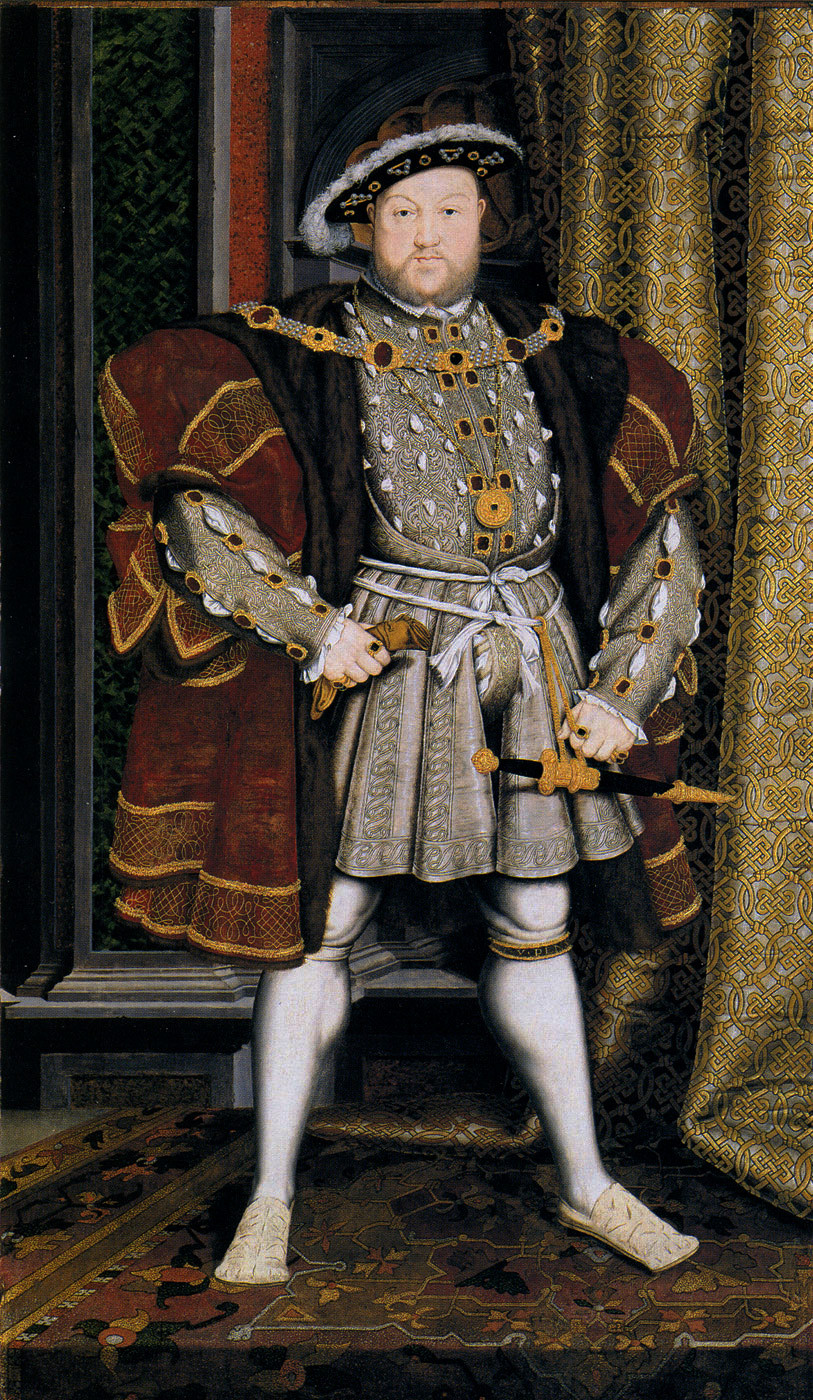
From a strategic perspective, England had a problem. It’s largest source of economic growth since its conquest by Guillaume le Bâtard (known in English as William the Bastard) in 1066 had been revenues from French territories supplemented by the occasional plundering chevauchée. Extensive Continental holdings had given the English monarchy greater scope for its ambitions than it’s island possessions warranted by themselves. England itself was squeezed pretty effectively by an effective tax collection regime that dated from Anglo-Saxon times but it remained a poor territory by European standards and wool exports to the Low Countries only partly supplemented tax revenue. When, in 1453, the English were largely expelled from the Continent, the resources available to the English monarchy became much more modest. Yet their ambitions could remain large. Henry VIII, the Profligate, strained his treasury as much as his waistline in his pursuit of European relevance. He left the kingdom on the edge of bankruptcy in spite of his seizure and redistribution of Catholic property, and almost as irrelevant to the European balance of power as it was at the start of his reign.

His daughter, Bloody Mary, was little better. Henry VII had courted a Spanish alliance by marrying his son Arthur to Ferdinand and Isabella’s daughter Catherine. Arthur inconveniently died, leaving Catherine a widow. As a cost-saving measure to keep Catherine’s large dowry, a motive that would be a recurring theme of the Tudor dynasty, she was married off to Henry, Duke of York, the future Henry VIII. The ultimate result of Henry VII’s thriftiness, Bloody Mary, was therefore inclined to seek an alliance with her Spanish relations after she came to the throne. She arranged a marriage with her much younger cousin, Phillip II, and proceeded to join him in a war on France. The end result was that England’s debts were even larger at Mary’s merciful death than they were at the beginning.

Elizabeth was her miserly grandfather reborn. After a short, disastrous war with France at the very beginning of her reign, Elizabeth followed a fairly conservative foreign policy as far as Continental entanglements went. Relations with Spain were decent at first. Phillip even proposed marriage to Elizabeth despite the fact that she 1) wasn’t a close relative 2) didn’t have a giant ponderous chin and 3) was a Protestant. However, this state of affairs didn’t last. Phillip succeeded his father Charles V Mega-Chin as king of Spain and developed an advanced allergy to Protestants. Every second of his life, he had this haunting fear that someone, somewhere was Protestant. Attempts to assuage this constant itch through the timely application of burning heretics were fruitless. Phillip II wanted to destroy every Protestant everywhere. When Elizabeth reinstated the Church settlement of her father and younger brother Edward VI, Phillip was seriously annoyed. He sat there in his cold, monastic office, grinding his giant jaw in frustration.
Elizabeth had more pressing problems than Phillip at first. Scotland, as always, was in turmoil and allied with the treacherous French. Her government was cash strapped. Elizabeth exercised extreme economy in spending and gradually rebuilt some of her grandfather’s massive stash of cash. Then, ever searching for new cash flows, Elizabeth discovered that selling human beings was highly profitable, even if it involved smuggling them into the Spanish New World over Spanish objections. Black globalization, as we’ll call it, was born.
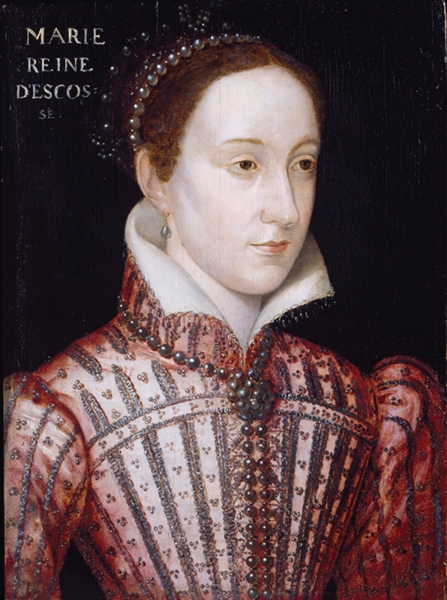
Spain, intercepting a fleet of English smugglers, sunk several English merchant ships. The commander of the fleet, John Hawkins, his cousin Francis Drake, and their royal mistress, who had quietly invested in their voyages, were infuriated. Elizabeth’s wrath never burned brighter than when her cash flow was threatened. Elizabeth gave tacit approval to Hawkins and Drake to raid Spanish shipping as privateers. Hawkins was also given the resources to rework the English navy. This policy was profitable (the Queen’s share of Drake’s plunder following his voyage around the world was half of her revenue for that year) but dangerous. The Spanish began plotting with English Catholics to put Mary the Headless, Queen of Scots, a Catholic and Elizabeth’s captive, on the throne. Elizabeth retaliated by increasing depredations against Spanish commerce, sending aid to the Dutch Protestants rebelling against Phillip II, and by parting Mary, Queen of Scots from her head, starting something of a trend among Mary’s Stuart descendants. Phillip decided to end his English problem once and for all and dispatched the dreaded Spanish Armada.
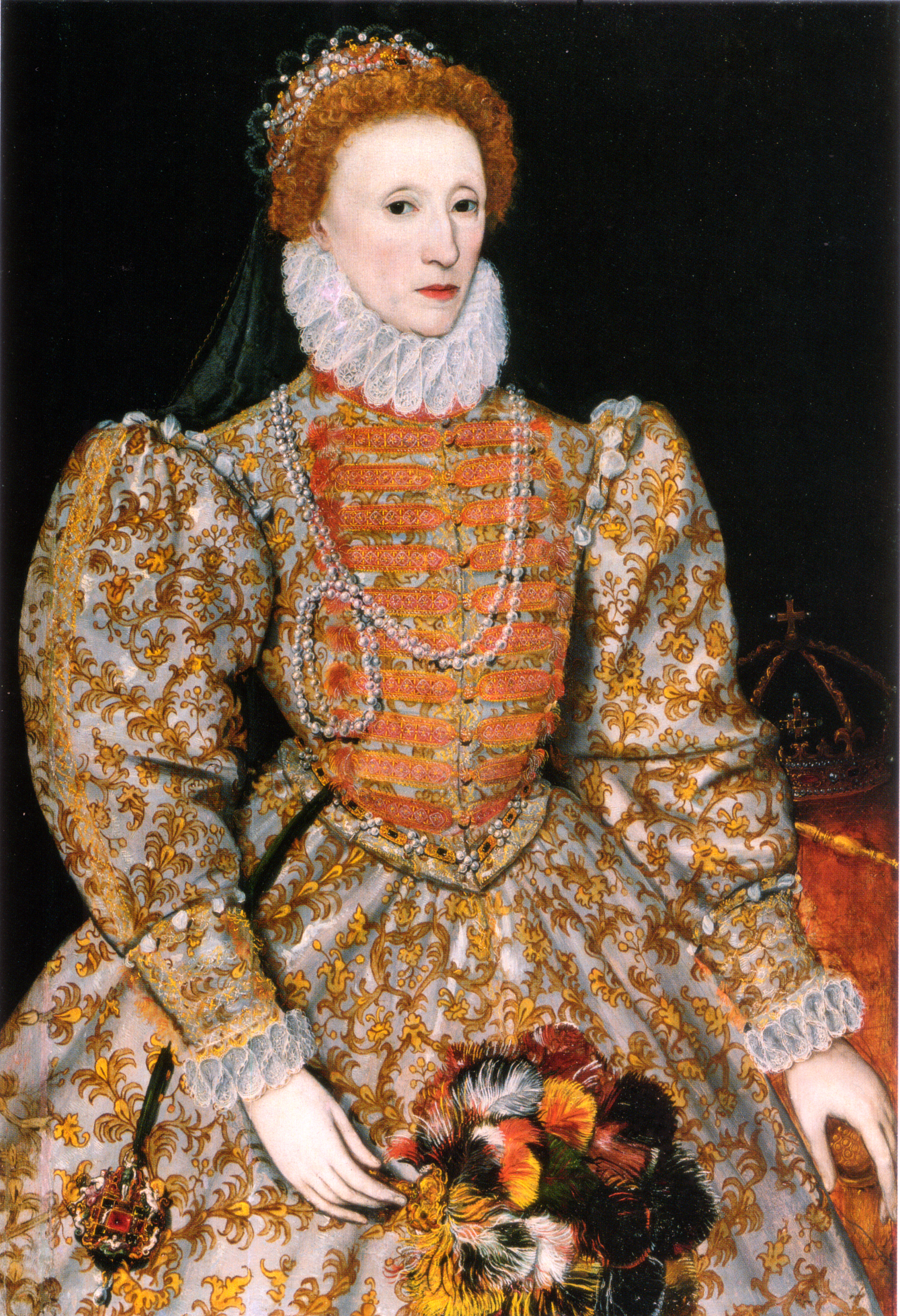
Due to bad weather and some English harassment, the Spanish Armada was unable to achieve its objectives for that campaign season and was forced to circumnavigate the British Isles to return to Spain. In the meantime, Elizabeth, showing her miserly instinct for managing cash flow, stiffed the soldiers and sailors who had manned her forces of their pay. Up to 8,000 hard to replace seamen and soldiers, weakened by malnutrition, died as a result of a typhus outbreak, leaving a skilled manpower deficit that would have serious consequences for the English campaign the following year.
The core naval forces that Phillip had dispatched had survived the circumnavigation of the British Isles but had only found refuge in the exposed ports of northern Spain at Coruna, Santander, and San Sebastian. They were badly damaged and undergoing repairs. The English government decided to destroy the ships in harbor, sending Spain’s Atlantic fleet to the bottom of the sea and throwing Spain’s colonies open to the English and their Dutch allies.
Fine sentiment that. Unfortunately, the English high command also decided that the expedition should land in Lisbon to trigger a revolt against the Spanish crown by the Portuguese, seize the Azores, and, if possible, intercept that year’s Spanish treasure fleet fresh in from America loaded with Bolivian silver.
Whew.
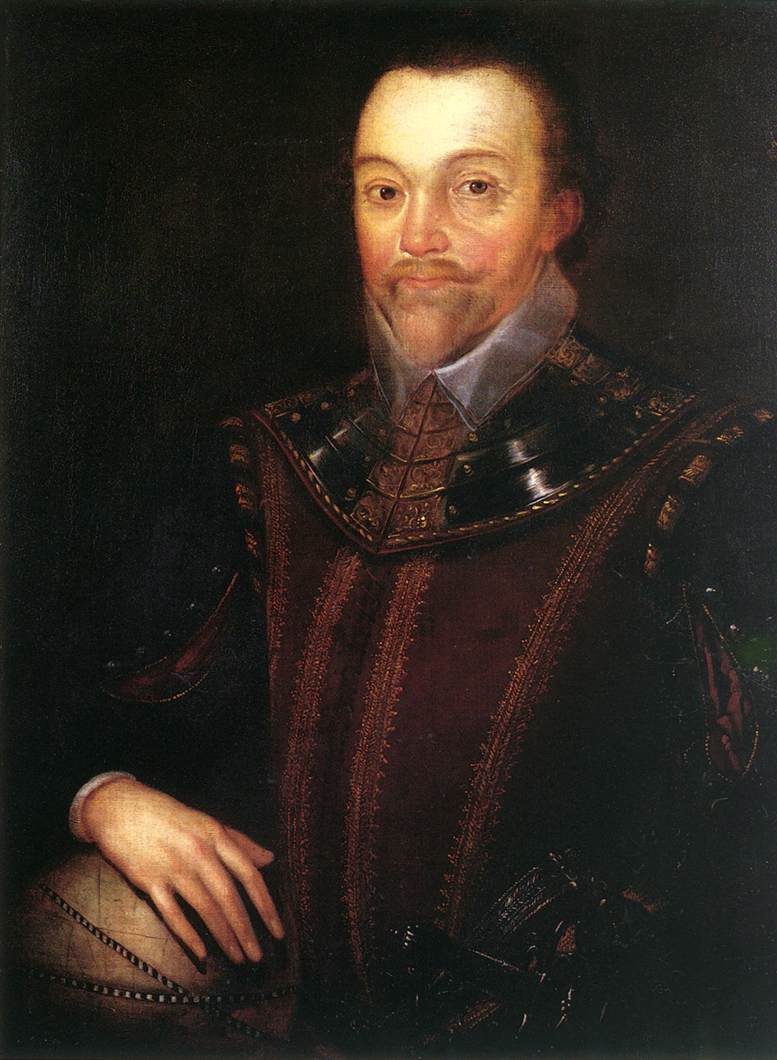
So began the English Armada of 1589, an ill-fated expedition that threw England into a decline from which it wouldn’t fully emerge until 1759, over one hundred and seventy years later. The expedition was organized as a profit seeking joint-stock company with Elizabeth fronting one quarter, the Dutch one-eighth, and the rest coming from various English noblemen and merchants. The rewards would be the rich pickings from sacking Lisbon, the Azores, and the Spanish treasure fleet. Whether these profit seeking goals conflicted with the major strategic goals was never properly clarified.
The expedition, already weighted down with a complex contradictory goals, had further ill-luck. Bad weather delayed sailing, the logistics were confused, 1/3 of the food supplies had already been eaten, the Dutch warships never showed up, and the number of trained soldiers was very small compared to untrained volunteers. Many of the needed veterans had been sent to their graves by Elizabethan parsimony and their absence would be felt. In addition, the English were short of artillery and cavalry.
When they finally sailed, Drake, who was in overall command and perhaps more focused on plunder, bypassed Santander, where most of the Spanish galleons were being refitted, and attacked Coruna instead. The English captured part of the town but were unable to capture its fortified center. While waiting for the winds to change, they wasted time besieging the upper town, which only caused English casualties. There was little plunder except for wine, which was as much an impediment as an advantage. The English then sailed to Lisbon where they found that the Spanish had used the time that the English had spent investing Coruna to buttress the defenses of Lisbon. The disaffected Portuguese failed to rise in rebellion when the English landed. The English managed to destroy some Spanish naval supplies but the Lisbon garrison refused to come out and fight, Elizabeth refused to send reinforcements, and there was a stalemate. Disease and fighting depleted English manpower so much that Lisbon and the attack on the Azores was abandoned and most of the fleet sailed home. Drake took twenty ships to try to intercept the treasure fleet but was caught in a bad storm and missed his quarry. His ships were so battered that his flagship, the Revenge, nearly sank.
None of the English Armada’s goals were achieved. Many men, ships, and doubloons had been spent for 3o,ooo pounds worth of plunder. The trip failed to hit its strategic targets and didn’t even make a profit.
Spain was soon able to build a new fleet of English style galleons and re-establish command of the sea. Multiple English attempts to seize the yearly treasure fleet were defeated and Spanish gold and silver shipments during the decade following the defeat of the English Armada were three times larger than during the 1580s. While an English raid on Cadiz destroyed the town, the Spanish torched the treasure fleet and sent their precious metals to the bottom of Cadiz harbor, leaving the English empty-handed and the Spanish able to salvage it later. Most English expeditions failed, including a spectacular failure off Panama in 1595 that killed off Drake and Hawkins. The Spanish were even able to send two more Armadas in 1596 and 1597 but they were defeated by bad weather. The Spanish also fed rebellions in Ireland against Elizabeth, which bogged down the English almost as badly in Ireland as the Spanish were bogged down in the Netherlands. Spain was drained by the ongoing war but were better able to afford it than the English with their more modest resources. The English continued to raid Spanish shipping and support the Dutch rebels, which hurt Spain, but, in a war of attrition, time favored the Spanish.
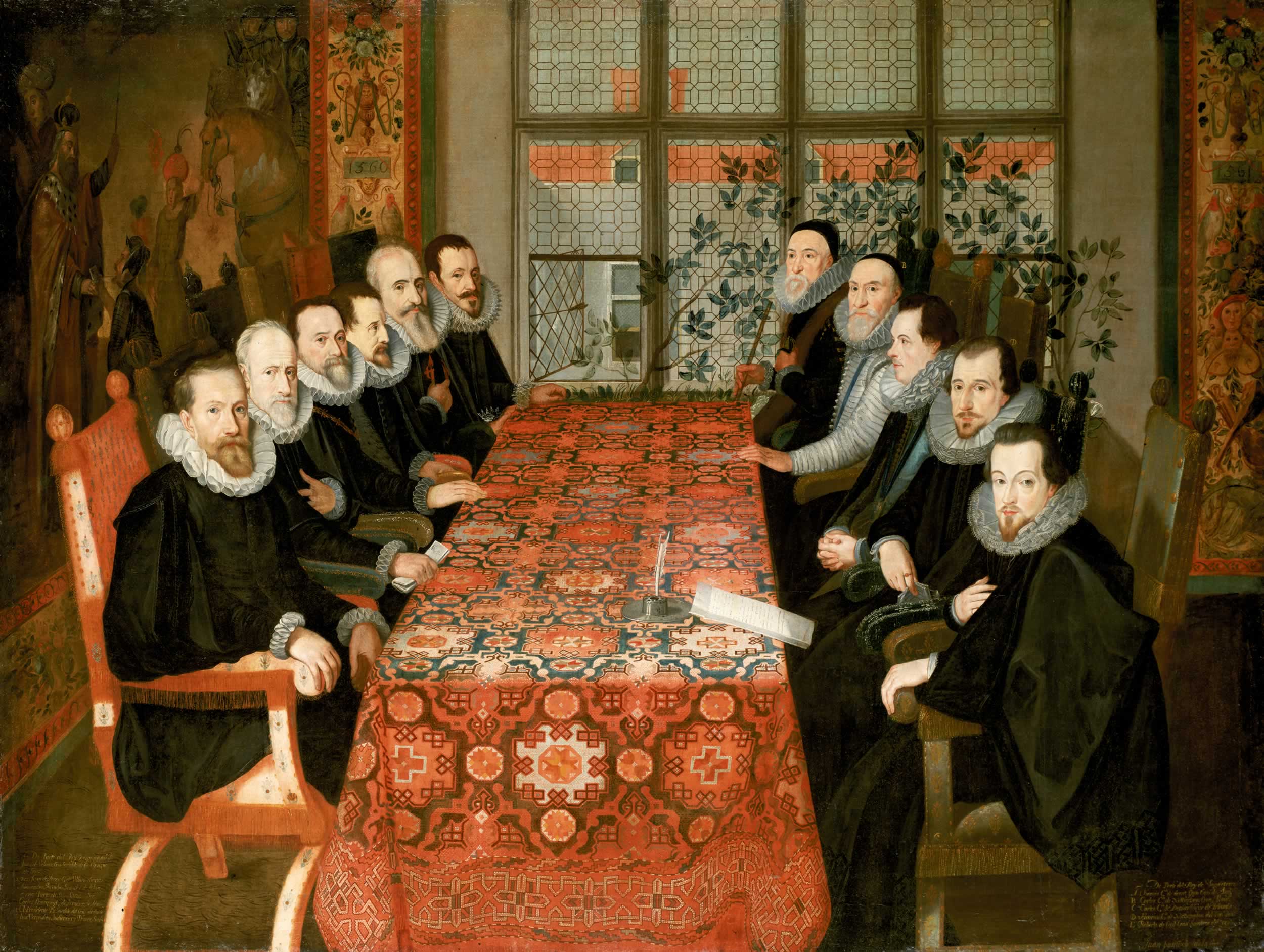
Phillip II died in 1598, never having relieved the world of the burden of heresy, and was succeeded by his son Phillip III. Elizabeth died in 1603 and was succeeded by James VI, the Wisest Fool in Christendom, King of Scots. James I quickly negotiated the Treaty of London that ended the long war with Spain. England pledged to stop helping the Dutch and refrain from attacking Spanish shipping. Spain recognized England as a Protestant state with a Protestant king. A modus vivendi was achieved among these fine gentlemen.
James I pursued a peaceful policy but was still weighed down from the debts from Elizabeth’s wars, coupled with his own financial incompetence. His son Charles I, the Headless, also found himself chronically short of funds, which led to a parting of the ways with his Parliament and, eventually, to a parting of his body from his head. England by that point was so pathetic that the decisive battle that destroyed Spain’s command of the seas, the Battle of the Downs, was fought by their former Dutch allies right off of England’s coast with England powerless to intervene. England had a burst of power under the enlightened Oliver Cromwell in the 1650s but was largely decrepit until the Dutch Invasion of 1688 brought about a reformation of English institutions along Dutch lines. The English also found a superior basis for their economy in the production and sale of various drugs, becoming the world’s most successful narco-state (in Niall Ferguson’s immortal words).
The Spanish had a resurgence of power. The Spanish Navy was able to control the seas, move treasure across the Atlantic and Pacific, and control trade with its colonies. As the most powerful military power in Europe, Spain was also able to intervene in the Thirty Years War on the side of their Austrian cousins. Spanish power began to ebb in the mid-sixteenth mid-seventeenth century but England was not the primary beneficiary. The Dutch emerged from their long war against Spain as the strongest naval power on Earth and successfully seized Portugal’s control of the Indian Ocean and the spice trade. The French defeated the Spanish on land and, with the Peace of the Pyrenees, became Europe’s dominant land power. This restored things to their proper balance, where England was able to focus on the real enemy: France.
mid-sixteenth
Mid-seventeenth?
I bogged down pretty early in this account. Bloody Mary was Henry the 8th’s child. You made it sound like she was Henry’s sister. Further, The real problem was not the Spanish connection, it was that she was a devout Roman Catholic, while her half-siblings, Edward and Elizabeth were protestants. Protestantism was a growing force in England, and Mary was at odds with it. The sobriquet Bloody was a reaction to her persecution of protestant clergymen. The spot where a number of them were burned is still marked in Oxford.
Furthermore Mary Stuart, Elizabeth’s cousin, has not been referred to as “the headless” in my readings. She was executed by decapitation, a privilege of the high nobility. Commoners were hanged.
“So began the English Armada of 1589, an ill-fated expedition that threw England into a decline from which it wouldn’t fully emerge until 1759”
England’s real problem, other than being tiny and poor, was the civil strife set off by competing claims of religion. That was the real ground under the decapitation of Charles I, and the coup-d’etat against his son James II. By the end of the 18th century, England was back in the European game allied with the Dutch and the Austrians against, France which had emerged from the 30 Year’s War (1618-1648, der Dreißigjährige Krieg) as the dominant power in Europe. In the War of the Spanish Succession (1701-1714), English General John Churchill was a important and often victorious player.
The important thing to know about Spain in this time period is that despite the almost infinite treasure they had wrung out of the New World, they finished the 17th Century as bankrupts.
Everyone should read “The Armada” by Garrett Mattingly.
Spain’s end has been moved into the correct century.
A well-done, amusing think-piece. And in fact most of the specific points are correct, especially about the Habsburg chins.
Some issues with the interpretation and wighting, however.
1. The English navy succeeded in its mission and the Spanish navy failed in its, and this was due primarily to English superiority in technology and tactics. They successfully denied the Spanish fleet the ability to land in England or destroy the English navy as a force in being. This was not due to the weather, which was actually fine while the Armada was in the Channel. The weather after the Armada left English waters was responsible for most of the loss and damage to the Armada before its return to Spain.
2. The failure of the Armada gave England breathing-space in which it could sail the Atlantic unhindered and not have to keep large forces in reserve in English waters against invasion, the factor that had prevented the relief and reinforcement of the Roanoke colony, leading to its failure. The English used this breathing-space to begin using the North American coast for fishing, building up the fleet and manpower base with familiar with and comfortable sailing American waters. Remember that when the Pilgrims landed, two Indians came out of the forest and greeted them in fluent English; in fact they had been to England. It was this experience base that made colonization relatively easy when the economy was ready to support it.
3. The English used the period from the defeat of the Armada (1588) to the Union with Scotland (1707) to work out solutions to religious diversity, parliamentary governance, stable currency, internal free markets, application of science to everyday life, modern taxation, debt management, and state financing, and modern capital markets. These solutions in fact became the basis for modern democratic capitalism and constitutional government. True, they borrowed and improved some financial institutions from the Dutch, who had borrowed and improved them from the Flemish, who had borrowed and improved them from the northern Italians. In the same period of time the Dutch tried and failed to solve the problems of the republican executive, and effective command of military forces in federal systems. These failures led to their eventual decline, conquest, and imposition of more typically Continental governmental forms under Napoleon.
4. Following the Armada, England has never seriously been threatened with denial of the oceans. Following 1701, Britain was the generally prevailing naval power in the Atlantic, until that role eventually passed to their offspring, the Americans.
5. Th limitations on England in the 17th century had the generally beneficial effect of f turning England away from its old obsession with continental adventures, except for the occasional power-balancing effort, and turing its attention into the outer world. It was in the period between 1588 and the 1750s that England (and after 1707, Britain) laid the groundwork from the subsequent eruption of English-speaking society around the globe.
Very rarely, outside of medical sources, is disease given much of a role in history. There is speculation that Mary had syphilis and Henry VIII may even have been syphilitic in his later years. The Soviets dug up Ivan the Terrible and showed that he had syphilis. It was ubiquitous in Europe after 1500 and by 1530, one third of the residents of Paris had it. Paracelsus was the first to find a therapy that worked and after his time the saying was “A night with Venus leads to a life with Mercury.” Maybe the Virgin Queen knew something the others didn’t.
Likewise, there is also almost no discussion of the role of typhus in the defeat of Napoleon in Russia. The French Grand Armee had the best medical services in the world with Baron Larrey (They were all vaccinated) but they had never encountered typhus until they entered Poland. Napoleon lost half his army to typhus.
It is interesting to speculate what might have happened in North America had the English prevailed decisive against the first Spanish Armada.
The history of North America has been defined between the conflict between the New Netherlands in the North and the Commonwealth Colonies of the south. This state of affairs arose largely because England never succeeded in challenging Holland’s domination of the seas until the late 1700’s. By the time the English rose to parity with the Dutch, the New Netherlands stretched from Hudson Bay to Virginia and was marching West to the Great Lakes and the Ohio River Valley.
Whereas the New Netherlands become a refuge for families and communities seeking freedom from religious freedom from all over Europe, the Commonwealth Colonies attracted mainly individuals desperate to find their fortune in the tobacco and indigo plantations. The New Netherlands became a middle-class society devoted to industry and trade whereas the Colonies became a hierarchal slave owning society based around plantation agriculture. The inherent conflicts of language, culture, economics, slavery, parent nation conflicts and territorial disagreements kept the two strongly divided up until the Early 20th Century.
If the English had decisive defeated the first Spanish Armada or if the English Armada had succeeded, England might have risen to a sea power a century earlier. They might have then completely displaced the Dutch from North America and all of North America might be one giant English speaking Commonwealth.
Speculating about the effects of that kind of super country is even more interesting but would take a lot more time.
It may be a good thing that England failed to rule the seas in the seventeenth century. The destruction of Spanish seapower would have left Spain’s richer colonies open to exploitation. English focus would have be drawn from the uncertain prospects of North America (outside of the cod banks and fur trade) towards the known prospects of Central and South America. If the English Crown had control of the Silver Mountain of Potosi and the silver mines of northern Mexico, their dependence on Parliament would have vanished. Imagine the Stuarts with the capital to subdue their fractious, uppity subjects. They could have paid for Irish mercenaries and other foreigners to come in and smash the English aristocracy, bringing about a Continental-style autocracy. Instead of letting the Puritans and other Dissenters cross the Atlantic into exile, they might have massacred them in place or driven them onto a continent ravaged by war. The greater wealth would have also given the English the incentive to meddle on the Continent more, intervening in France on the side of the Huguenots on a much greater scale and taking advantage of the interregnum that followed the assassination of Henry IV. France would have been so distracted that it may not have ever intervened in the Thirty Years War, leading Sweden and Austria to come to terms earlier than they did. Germany might have been divided between a Swedish ascendancy and Vienna. Smaller German principalities like, say, Prussia might have found it harder than they did to become the nucleus of a future German state. The mind boggles.
I agree wholeheartedly with the main thesis of Joseph’s comment — a large stream of American mineral wealth for the Stuarts would have been a disaster for English constitutional development. However, I suspect that the later Stuarts would have intervened against the Huguenots, rathe than for them.
Actually, a Germany divided between an Austrian-domiated south and a Swedish-dominated north, with Prussia as a minor power (probably a Swedish satellite) doesn’t sound too bad, though.
The best history of the Armada I’ve read is The Confident Hope of a Miracle by Neil Hanson. Elizabeth does not come out well. Her handling of the fleet that annoyed the Armada after the action effectively destroyed it.
The Hanson book is excellent, particularly if you combine it with N.A.M. Rodger’s Command of the Ocean for wider context. I particularly like the Hanson for
1. a sense of what it’s like to be on the right and wrong sides, respectively, of a revolution in military affairs. Some parts of it are so familiar, like discovering that you haven’t evolved the right tactics and doctrine for exploiting your new weapon systems, or discovering that the rate of fire of your new weapons is so much greater than what you’re used to that you keep running out of ammunition.
2. an appreciation of medieval constitutionalism in England — like the fact that Elizabeth didn’t actually declare war against Spain because she didn’t want to have to summon a Parliament and have to negotiate with them,so she tried to do the whole war on the cheap. Not the best circumstances for discovering that your new weapons systems need much more ammunition than you expected. I liked the detail that Elizabeth turned captured Spanish prisoners loose to wander the highways and beg — if England wasn’t at war they were “distressed mariners”, not POWs, and the local parishes were responsible for their upkeep.
3. Hanson’s interesting point (which I had never heard before) that the reason the Spanish got so panicked by Drake’s fireships at Calais was the “hellburners of Antwerp” episode a few years before, big honking clockwork-detonated bomb ships that the Dutch floated downstream into Spanish positions, where they detonated with great effect. Definitely achieved some shock and awe on Parma’s men.
4. Even after all these centuries, the stories of what happened to the Spanish ships sailing around Scotland and Ireland is still chilling. The image of the Dutch fishermen coming across the herd of horses in the middle of the North Sea, swimming north after the fleet, now over the horizon, that had jettisoned them, or the Irish tales of an lang maol, the “bare ship”, driven ashore dismasted, with no survivors — these would make striking visuals. A great movie could be made of this story, although I cringe to think of how James Cameron would do it.
I read a bit of the Hanson book in the bookstore, including some of the stories about the survivors wrecked in Ireland. I kept thinking about it, and eventually had to go back and buy the book. I’m glad I did.
Somewhat related: Here’s an intelligent Spanish naval official, writing in 1797, with an analysis of why his country’s fleet tended to lose to that of England…
http://photoncourier.blogspot.com/2005_10_01_photoncourier_archive.html#112943359433129395
That Spanish officer’s comment brings to mind the success of the German army in which the noncoms were able to adjust and adapt to conditions with absolute confidence in their men. They outfought every army they faced from Waterloo on. It seems ironic to me that they were defeated by the Russians with better technology, the T 34 tank.